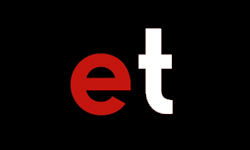Pros: By honing in on Höss, Hyland’s play doesn’t choose the obvious Holocaust perpetrators (Hitler, Himmler, Mengele et al).
Cons: Crescendos in Höss’ speech become distracting; likewise, proximity to the audience and prolonged emphasis of gestures can overkill the intensity.
A sobering study of Nazism through the eyes of Rudolf Höss, Auschwitz commandant, and a Jewish internee as his test case; frequently uncomfortable, but not always intentionally.Summary
Rating
Good
The term ‘political hygiene’ is a chilling one, especially when spoken by Rudolf Höss, commandant of Auschwitz-Birkenau, a place he has just described as ‘the largest human slaughterhouse in history’. Hearing these words on a hot Saturday night in gentrified Wimbledon feels bizarre. Yet racial and xenophobic politics aren’t confined to history: as you read this, Mexican migrant children are separated from their parents in American camps, thanks to a US president who labels Mexicans ‘rapists’; Hungary’s president seeks to ban asylum seekers and jail those who help them; Rohingya Muslims still face persecution, bordering on genocide, in Myanmar.
Decades on, have we really learned anything from the Holocaust? That could be one takeaway from the appropriately-named play, A Lesson from Auschwitz, which follows Höss (James Hyland, also writing, directing and producing) and a Jewish prisoner (Michael Shon) he seeks to make an example of, for one tense hour. Of course, Höss does most of the talking, whilst internee Abraham Könisberg mostly conveys his anguish in gestures, able to speak only when permitted. His occasional grunts, groans and stuttered lines (sensitively delivered by Shon) contrast with the verbal diarrhoea and constant crowing of Höss as he delivers a presentation to Mengele and other senior Nazis. This takes the form of him directly addressing the audience with ferocious intensity. Könisberg’s presence also shows the gradual dehumanisation of internees, emphasised by spot-on make-up – fake blood that doesn’t look fake at all – and costume design. In a heartfelt tribute to real-life Holocaust victims, Hyland took Könisberg’s prisoner number, 26947, from the Auschwitz records: it belonged to Polish Catholic teenager Czesława Kwoka, who died in March 1943 at the age of just 14.
Watching Höss whip Könisberg again and again makes for uncomfortable viewing, but the drawn-out nature of this episode does leave little room for the victim’s story. Furthermore, most of Höss’ lines are delivered in quickly rising and falling volume as he veers from quietly precise and matter-of-fact discourse to spitting and shouting the words. This begins to detract from the content, and makes you long for more of Könisberg. Hyland often directly addresses particular audience members and stands too close to them, particularly when shouting; having sat in the second row, I wished I’d been further back to take in the whole picture rather than the actor leaning above me, though I was impressed he barely broke a sweat under stage lights and in a confined space.
A moment of Höss walking the aisles is also hampered by creaking boards underfoot – part of the problem when the theatre has relegated this play to its studio. Audience members arriving early have postage stamp-sized areas to wait in (most of us hovered outside the toilets) with nowhere to sit down, which is problematic for older or less able-bodied viewers. Any future London performances would work better in more accommodating venues.
A Lesson from Auschwitz needs some adjustments, but it’s a shame there aren’t any more London dates in the diary; history students could benefit from seeing it, particularly in the run-up to the International Day of Tolerance (16 November 2018) or Holocaust Memorial Day (27 January 2019). This is a thoughtful addition to Holocaust playwriting, especially in light of the current political climate.
Written, directed and produced by: James Hyland
Box Office: 0844 871 7646 – no further New Wimbledon Theatre performances scheduled.
Booking Link: This show has finished its current run
Booking Until: N/A
 Everything Theatre Reviews, interviews and news for theatre lovers, London and beyond
Everything Theatre Reviews, interviews and news for theatre lovers, London and beyond



